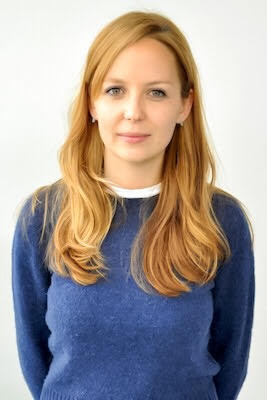Marina Luginina
Marina Luginina
Visiting researcher (University of Cagliari, Italy)
Polymer-bioactive glass composite fibrous scaffolds for hard and soft tissue engineering
Betreuer: Dr. Liliana Liverani, Prof. Aldo R. Boccaccini
The aim of this research project is the development of advanced bioactive scaffolds taking advantage of electrospinning technique. This technique allows the fabrication
of micro- and nanofibrous mats from various polymer solutions. In particular, poly(epsilon-caprolactone) (PCL) [1], as well as poly(glycerol sebacate) (PGS)
will be utilized. Both of them exhibit biocompatibility and biodegradability, and possess properties essential for biomedical applications (i.e. soft and hard tissue
engineering) [2]. Moreover, in order to improve the bioactive features of these polymeric mats, bioactive glass particles will be incorporated. In the present study
novel Boron containing bioactive glasses [3] will be used. The influence of bioactive glass composition (e.g. B contain), size and concentration of particles incorporated into the polymeric mats
on the bioactivity and degradation behavior of the obtained electrospun fibrous scaffolds will be investigated.
[1] Liverani L., Boccaccini A.R. Versatile Production of Poly(Epsilon-Caprolactone) Fibers by Electrospinning Using Benign Solvents. Nanomaterials (Basel) 6 (2016) 75.
[2] Rai R., Tallawi M., Grigore A., Boccaccini A.R. Synthesis, properties and biomedical applications of poly(glycerol sebacate) (PGS): A review. Progress in Polymer Science. 37 (2012) 1051-1078.
[3] Balasubramanian, P., et al., Boron-containing bioactive glasses in bone and soft tissue engineering, J. Europ. Ceram. Soc. 38 (2018) 855-869.

